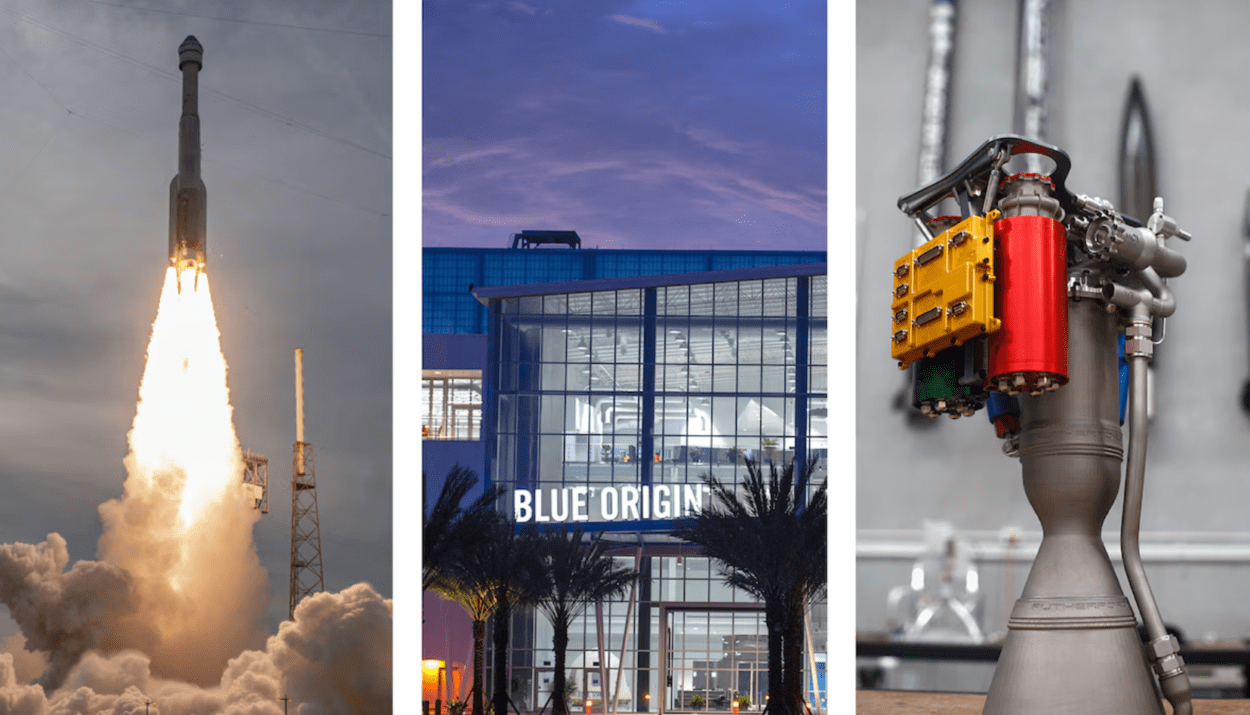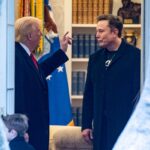As the high-profile feud between President Donald Trump and Elon Musk deepens, NASA and the Pentagon are actively exploring alternatives to SpaceX, raising alarm over the US government’s critical dependence on a single private company for space and defense missions.
According to a Washington Post exclusive, federal officials have reached out to SpaceX competitors including Rocket Lab ($RKLB), Stoke Space, Blue Origin, and Boeing’s United Launch Alliance to assess how soon their launch systems could be made fully operational for government payloads.
“The feud has exposed a dangerous overreliance,” one official reportedly told WaPo. “We’re now doing what we should’ve done years ago — diversifying.”
Space Stocks Surge on Musk Fallout
Investors responded swiftly. Shares of Rocket Lab jumped more than 9%, Boeing rose 0.8%, and Lockheed Martin and Northrop Grumman also posted gains, as speculation mounted that these firms could win future contracts in the event of a SpaceX freeze.
But despite the optimism, experts say none of these companies is truly ready to replace SpaceX — at least not yet.
“There is simply no one who can do what SpaceX does at their price and cadence,” said a former NASA program manager. “That’s the problem.”
NASA and the Defence Department Rely on SpaceX in So Many Ways
SpaceX today handles a staggering share of US civil and military space operations:
- Sole provider of astronaut flights to and from the International Space Station
- Prime contractor for Artemis moon missions
- Launcher of top-secret defense and intelligence satellites
- Operator of Starlink, a critical global internet infrastructure used by both the Pentagon and Ukraine
Even NASA’s plan to retire the ISS relies on SpaceX’s spacecraft to safely deorbit the aging space station by 2030.
Musk initially threatened to decommission the Crew Dragon capsule after Trump attacked his companies and floated canceling contracts. He later walked back the threat, but the damage was done — officials began preparing for what a world without SpaceX might look like.
Few Backup Plans
Boeing’s Starliner remains plagued by delays and reliability issues — its last mission left astronauts stranded on the ISS for nine months. Northrop Grumman’s Cygnus cargo craft faced launch damage, and Sierra Space’s Dream Chaser has yet to take flight. Blue Origin’s New Glenn rocket only launched its first test this year.
In short, SpaceX is irreplaceable in the short term. Even if Trump moves forward with a crackdown — canceling contracts or launching regulatory attacks — doing so would severely undermine NASA’s operations, the Artemis moon program, and key military missions.
“Without SpaceX, boots on the moon would have to wait,” The New York Times noted bluntly.
Space-Themed ETFs to Watch Amid SpaceX Shake-Up
With NASA and the Pentagon reportedly exploring alternatives to SpaceX, space sector ETFs are drawing new attention from investors tracking government space contracts and private aerospace innovation. Here are some of the top ETFs worth watching:
- ARKX – ARK Space Exploration & Innovation ETF
- UFO – Procure Space ETF
- SPRX – Spear Alpha ETF
- IFLY – ETFMG Drone Economy Strategy ETF
- XKFF – SPDR Kensho Final Frontiers ETF
These ETFs provide diversified exposure to space tech, defense contractors, and aerospace innovation—many of which could benefit if government agencies reallocate missions away from SpaceX.
| Symbol | ETF Name | Asset Class | Total Assets | YTD Price Change | Avg. Daily Volume | Closing Price | 1-Day Change | Dividend Rating |
|---|---|---|---|---|---|---|---|---|
| ARKX | ARK Space Exploration & Innovation ETF | Equity | $293,731,000 | 7.43% | 78,180 | $20.97 | -1.04% | — |
| UFO | Procure Space ETF | Equity | $64,929,500 | 10.55% | 42,166 | $25.66 | 2.64% | B+ |
| SPRX | Spear Alpha ETF | Equity | $57,142,200 | -1.03% | 46,880 | $26.85 | -2.36% | B- |
| IFLY | ETFMG Drone Economy Strategy ETF | Equity | $42,197,505 | -26.34% | 6,219 | $27.21 | 0.44% | A- |
| XKFF | SPDR Kensho Final Frontiers ETF | Equity | $3,312,443 | 28.96% | 1,945 | $33.28 | -0.30% | C |
Source: ETFdb – Space ETFs
Politics, Power, and the Future
Trump’s feud with Musk has exposed not just a political fallout, but a structural vulnerability in US space strategy. As Musk continues to dominate launch infrastructure, satellite connectivity, and deep-space planning, his clashes with Washington could have existential consequences for the space program.
NASA, for now, is staying diplomatic.
“We will continue to work with our industry partners to ensure the President’s objectives in space are met,” said NASA press secretary Bethany Stevens.
But behind the scenes, it’s clear: if the Trump-Musk feud turns into a scorched-Earth war, the US government may be the one left grounded.
Disclosure: This article does not represent investment advice. The content and materials featured on this page are for educational purposes only.
Related:
Elon Musk Empire Under Fire: What Trump’s Revenge Could Mean for Tesla and SpaceX
“You Mean Man Who Lost His Mind?” — Trump Slams Door on Musk
Timeline of Elon Musk and Donald Trump “Break Up”
Why Trump Can’t Just Quit Elon Musk — Even After Their Public Breakup










